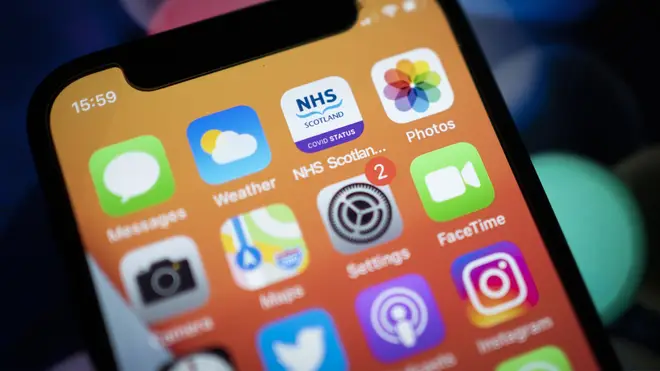
Ian Payne 4am - 7am
11 May 2023, 10:51

Schools could do more to educate pupils and parents about the dangers of online pornography, campaigners say.
Smartphones should be banned in schools to tackle the “damage” being done from children watching pornography, MPs have heard.
Campaigners told the Commons Women and Equalities Committee that schools should remove phones from children to reduce their exposure to online pornography and to stop them from “upskirting” other pupils.
Schools could do more to educate pupils and parents about the dangers of pornography and its links to violence against women and girls, MPs were told.
Lucy Marsh, from the Family Education Trust charity, said: “Until we actually address the fact that children are watching porn, we’re never going to solve the problem of violence against women because while children have got access to smartphones they are going to be able to view it.
“I think really we need to be looking at should children have access to smartphones and should they be in schools for that? For that I would say the answer is no. I don’t think smartphones should be in schools.
“I think that actually we should look at completely banning children having them [smartphones] in school because that would solve some of the problems of things like children being filmed getting changed or being filmed in toilets or upskirting, and things like that, that would solve some of it.”
Her comments come after the Children’s Commissioner for England called for more robust online protections for children after its research found that acts of sexual violence commonly found in pornography were referenced in half of police interview transcripts of child-on-child sex abuse cases.
Dame Rachel de Souza said its report, published this week, said further review of some of the cases found children suggesting direct links between exposure to pornography and harmful sexual behaviour.
When asked whether the current Relationships, Sex and Health Education (RSHE) curriculum does enough to help tackle misogyny and violence against women and girls, Ms Marsh said: “Not at all. We’re seeing huge damage being done with children watching porn.”
She told the Women and Equalities Committee: “I think that schools are not addressing the fact that the harm that this does to children in being able to form healthy relationships when they’re adults.”
Ms Marsh added schools could hold sessions for parents on the “dangers” of porn, as she suggested some parents are “probably in denial that their children aren’t looking at this”.
Tanya Carter, from campaign group Safe Schools Alliance UK, also called on schools to educate parents about “the sheer volume of pornography online”.
She told MPs on Wednesday: “At Safe Schools we think smartphones absolutely should not be in schools.
“Once you’ve got smartphones in schools, every child in that school is only as protected as the least protected child in that school.
“It doesn’t matter what controls you’ve got on your own child’s smartphone, if another child in that school has no controls on their phone your child can be exposed to hardcore porn at lunchtime.”
In March, Rishi Sunak announced that the Government would bring forward a review of RSHE in schools.
It came after Conservative MP Miriam Cates claimed some pupils have been subjected to relationships and sex education classes that are “age-inappropriate, extreme, sexualising and inaccurate”.
During the committee, Ms Carter called for a “public inquiry” into the situation as she said the campaign group had heard from “lots of parents” who cannot get access to teaching materials on the RSHE curriculum.
She added: “Absolutely we want children to have education that benefits them, but some of the materials we’ve seen it’s really not beneficial to children.”